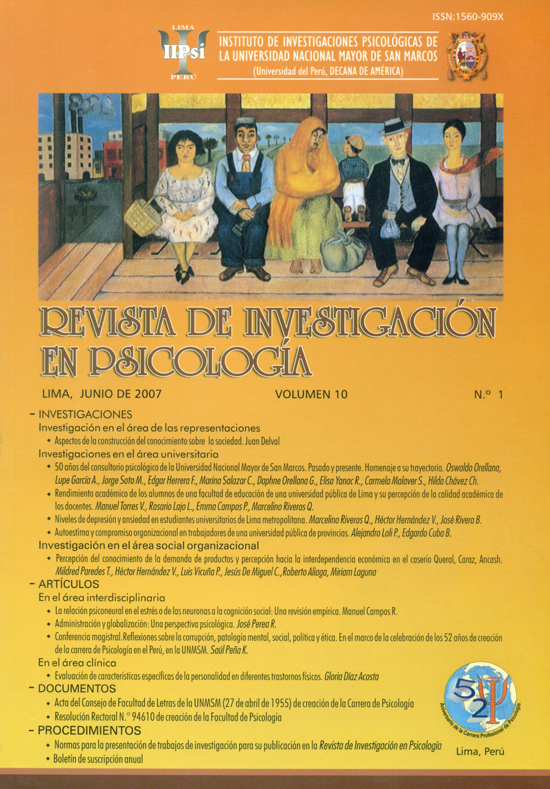Aspects of the construction of knowledge about the society
DOI:
https://doi.org/10.15381/rinvp.v10i1.3906Keywords:
children’s understanding of society, constructivism, social representations, economic notionsAbstract
Childrens must construct models or representations of the social reality in which it lives, to try to give a sense to the world that surrounds to him and in addition those representations serve as frame for their action. Most of those mental representations are not simple copies of those of the adults, but that they constitute a personal construction and they differ qualitatively from those of the greater ones. The study of the development of the knowledge on the society in the boy attracts attention on the part of the investigators more and more. Three are main the theoretical approaches. The constructivista position, according to which the boy must make his own construction of the knowledge with the help of the intellectual instruments which he has. The tradition of the study of the social representations originated in the sociology French and renewed by Moscovici, and the historical-cultural psychology of vygotskiana tradition. The first position puts the accent on the activity of the subject, whereas the other two emphasize the environmental influences and constitute a necessary counterpoint of the constructivista position. Nevertheless, the existence of infantile beliefs different from those of the adults and the social context, and the universalidad of some of these beliefs forces not to forget the personal work to us construction that it has to make the subject.Downloads
Published
Issue
Section
License
Copyright (c) 2007 Juan Delval

This work is licensed under a Creative Commons Attribution-NonCommercial-ShareAlike 4.0 International License.
THE AUTHORS RETAIN THEIR RIGHTS:
a. The authors retain their trademark and patent rights, and also on any process or procedure described in the article.
b. The authors retain the right to share, copy, distribute, execute and publicly communicate the article published in the Journal of Research in Psychology (for example, place it in an institutional repository or publish it in a book), with acknowledgment of its initial publication in the Journal of Research in Psychology.
c. Authors retain the right to make a subsequent publication of their work, to use the article or any part of it (for example: a compilation of their work, lecture notes, thesis, or for a book), provided that they indicate the source. of publication (authors of the work, magazine, volume, number and date).






